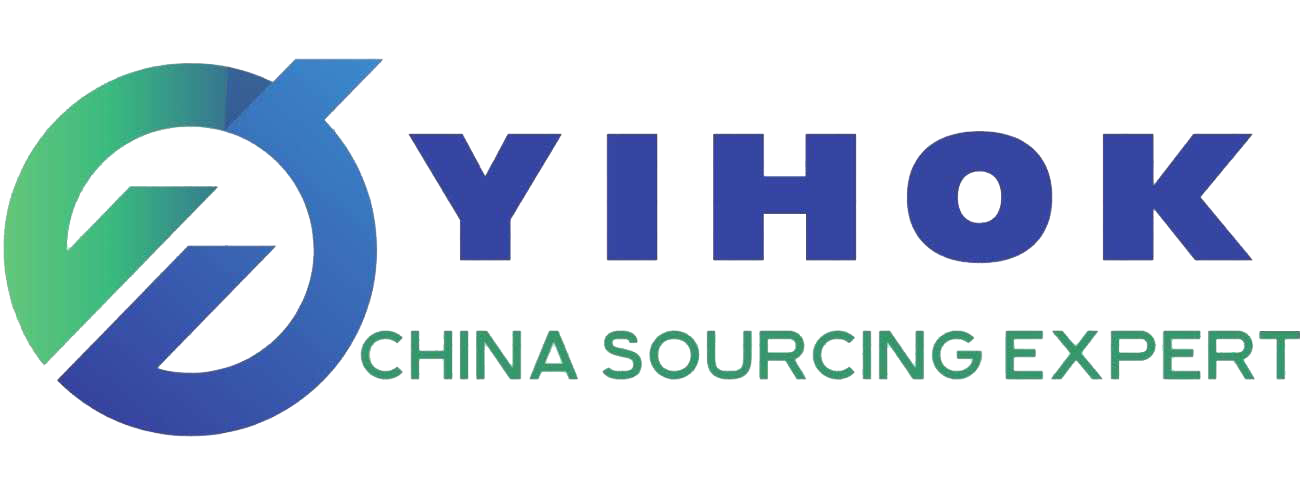
Do you know what is CNF meaning and how it can help you save costs in shipping?
Are you aware of shipping incoterms and how it can impact your business?
CNF stands for Cost and Freight; It is a legal term that is commonly used in international shipping and transportation.
CNF refers to a shipping agreement between a buyer and a seller in which the seller pays to send the item to a destination port to the customer, and the buyer is responsible for the rest of the shipping charges from the port to the buyer’s destination or warehouse.
Having a thorough understanding of CNF and other incoterms can help you to get a clear idea about shipping expenses.
In this blog, we have provided all the important aspects of CNF meaning that you need to know as a buyer or seller.
Chapter 1: Overview of CNF & Common Concepts
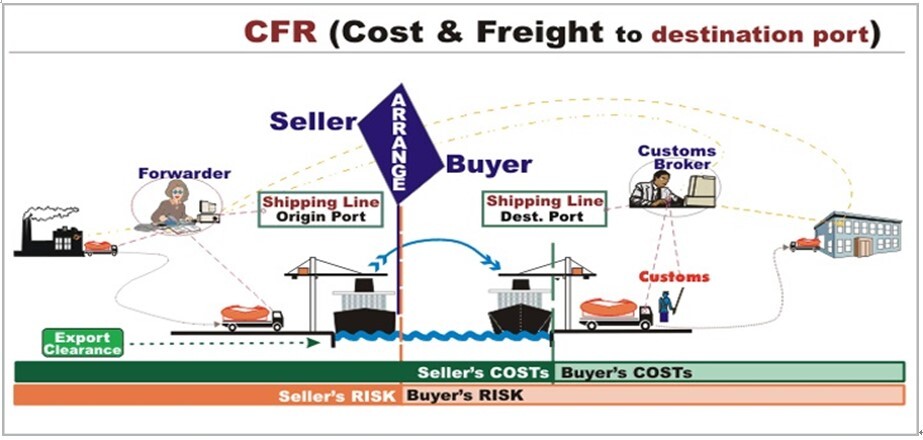
Before we dive into the details of CNF, let’s first grasp the fundamentals of how goods are shipped.
When products are sent across borders, several steps happen. These involve things like making deals, organizing transportation, and physically moving the goods from the seller to the purchaser.
To make this process smoother and ensure everyone understands their roles, there are standardized shipping terms called Incoterms. These terms are created by the International Chamber of Commerce (ICC). They help clarify who is responsible for what during the shipping process.
1. CNF Meaning
CNF, short for Cost and Freight, is among the Incoterms that define what the seller and buyer need to do during shipping.
It consists of three key parts:
Cost: This is the amount the buyer pays for the goods being shipped.
Insurance: This covers any potential loss or damage while the goods are in transit. In CNF, the buyer is responsible for arranging insurance.
Freight: This is the expense of moving the goods from where the seller is located to the destination port.
2. What is CNF? Is CNF, C&F and CFR the same?
CNF is the short form for cost and freight, and it is also known as CFR and C&F. It refers to a contract between a shipper (mostly a seller) and a consignee (commonly a buyer) regarding shipment charges.
This terminology is only used for sea freight. Seller pays to deliver the goods to the port that is nearest to the buyer and buyer bears all the shipment expense from that point onward.
Please note that the 3 terms CNF, C&F and CRF means the same and there is no difference between them while operating. C&F and CFR are usually used in terms of delivery in a domestic or international trade. Some also use CNF.
3. The Usage of CNF Incoterm
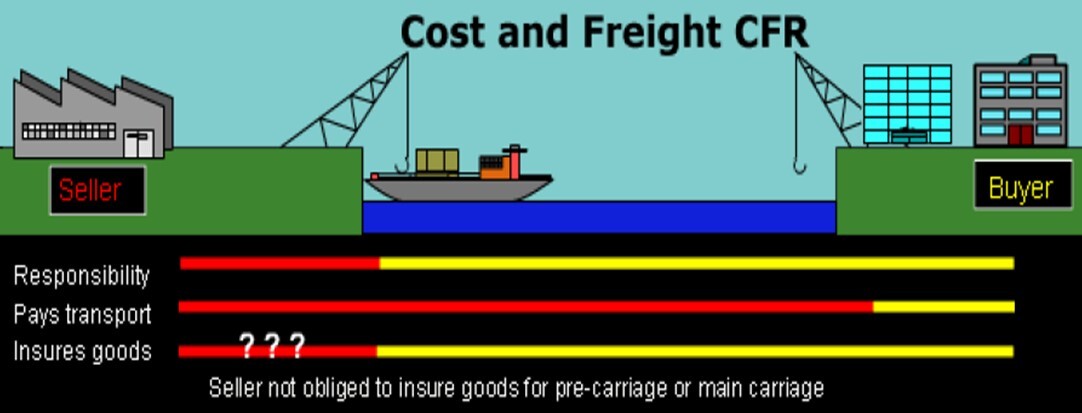
Now that we have understood the meaning and importance of the CNF shipping term, a question may arise here.
When and who should use this incoterm?
It’s important to understand when to use the CNF Incoterm to get the most benefit. Let’s look at the scenarios where using CNF is the best option:
Sea Freight Shipments
CNF shipping term is commonly used for shipments that travel via sea route.
Experienced Importers
This Incoterm is suitable for experienced buyers who understand the import processes and can manage customs clearance and delivery from the port onward.
Price-Sensitive Markets
The CNF shipping term can also benefit sellers targeting price-sensitive markets. It allows them to offer competitive prices for the goods that include freight costs.
For example, a seller in China is exporting electronics to a buyer in the US. By using the CNF shipping term, the seller includes the cost of shipping the goods by sea to the port in the US. It will allow the seller to offer a more competitive price for the electronics, as the buyer doesn’t need to worry about covering the freight costs separately. However, the buyer will still be responsible for customs duties and delivery from the port. This makes the offer more attractive to price-sensitive buyers in the US.
4. Relevance of CNF and incoterms
Incoterms is a short form of International Commercial Terms. Incoterms are commercial universal terms that are standardized to help and aid the trade.
They include 11 predefined sets of rules and regulations for buyers and sellers to facilitate international trade. CNF is one of the eleven pre-defined and globally recognized incoterm.

The main purpose of defining these terminologies is to specify centralized, authentic, and constant standards for international trading.
With the help of CNF, buyers and sellers can get a better understanding of risks, tasks, costs, and tax-related information that can be involved in transferring the goods.
These terminologies are usually used by people who are involved in the overseas delivery of goods including buyers, sellers, producers, banks, and traders use these terminologies.
5. Is CNF applicable to all modes of transportation?

No, CNF is only applicable when goods are delivered via Sea freight. Some other incoterms including CIF, FAS, and FOB shipping incoterms are also applicable for sea freight and cargo that is delivered through sea or air.
There are other shipping incoterms that refer to other modes of transportation as well.
6. What are the Benefits of CNF for Sellers and Buyers?
The CNF (Cost and Freight) shipping term offers several benefits to both sellers and buyers. It simplifies the shipping process by clarifying responsibilities and costs. The table below shows the benefits of CNF for sellers and buyers:
| Benefits for Sellers | Benefits for Buyers |
| Clear cost structure up to the port of destination. | Control over the import process, as they can choose custom brokers and insurance providers of their choice. |
| Simplified logistics as they only need to arrange transportation to the destination port. | Flexibility in transportation from the port. They can choose their preferred mode of transportation from the port onwards. |
| They can offer their goods at competitive rates to reach more buyers. | They can choose their favored insurance providers and save on insurance costs. |
7. What are the Drawbacks of CNF for Sellers and Buyers?

Although CNF has its benefits, we cannot deny its drawbacks. These challenges come from the way costs and responsibilities are split between sellers and buyers. You should acknowledge these issues before a trade to decide if CNF is the best choice for you.
Let’s understand how the CNF Incoterm can be unfavorable for sellers and buyers.
| Drawbacks for Sellers | Drawbacks for Buyers |
| Sellers do not have control over the delivery once the goods are on the ship. | Buyers must handle all the customs and import paperwork, which can be time-consuming |
| If there are delays in customs, it may impact when the seller receives payment. | After delivery, buyers are responsible for any loss or damage to the goods. |
| Sellers are responsible for any damage that occurs during unloading at the destination port. | Buyers may need to pay higher insurance costs, as they are responsible for insuring the goods after delivery. |
8. What is the difference between CNF and CIF?
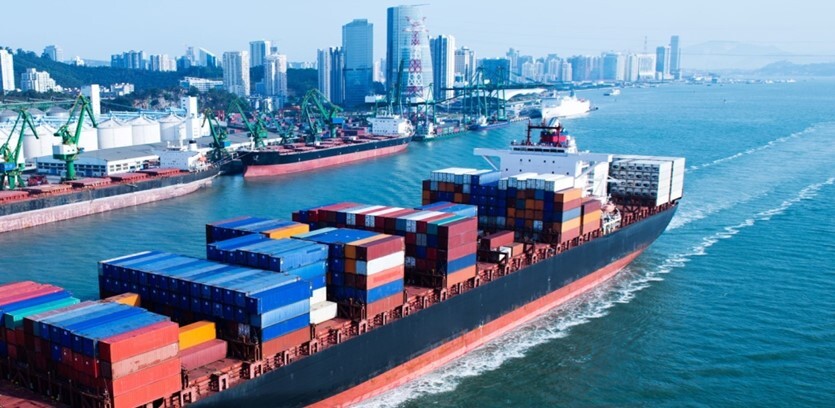
CIF stands for Cost Insurance and Freight; CNF and CIF have a lot of similarities and are often confused with each other.
In both CNF and CIF seller is responsible to unload the goods to a port that is nearest to the buyer. Then buyer is responsible for the customs clearance and delivery of the cargo from the port to the buyer’s destination.
However, in CIF suppliers or sellers also provide the insurance for the goods. That’s means if any damage occurs during the shipment, it’s the responsibility of the supplier/seller.
Chapter 2: How to Calculate CNF Pricing Accurately?
Before we get into the details of how we can calculate CNF pricing, it’s important to understand the costs involved in evaluating and computing it. Although sellers are responsible for paying CNF charges, buyers are also liable for some costs that are not associated with the CNF shipping term.
Buyers must have a clear understanding of what charges are included in CNF and which costs they need to pay separately. It will help them clarify financial responsibilities and prevent unexpected expenses.
Let’s sort out the costs associated with CNF and also those not included in CNF shipping term:
Costs Included in CNF

Here is the list of the costs that are included in the CNF price. The seller pays for all costs until the goods reach the destination port. These include:
- Export fees
- Shipping charges
- Packing, labeling, and loading the goods onto the ship
- Getting export approvals, like licenses and permits
Costs Not Included in CNF
CNF can be a cost-effective choice as it covers freight and shipping charges. However, some costs are not included and need to be paid separately by the buyers.
Here is a list of shipping costs not covered under CNF (Cost and Freight).
- Unloading costs
- Import duties
- Taxes
- Insuring the goods during transit
- Customs clearance fee
- Port charges
- VAT (value-added tax)
- Docking charge
- Warehouse storage fee
Step-by-Step Guide to Calculating CNF Pricing

CNF pricing includes the cost of goods and freight charges to the destination port. However, buyers must also consider additional expenses incurred after the shipment arrives.
Initial CNF Price
At the time of calculating CNF pricing, first consider the seller’s price. This includes the cost of the goods and the shipping charges to deliver the goods to the destination port.
Add Additional Charges
After the goods arrive, include costs like customs duties, import taxes, and port handling fees.
Calculate the Final Total
Add the initial CNF price and the additional charges to get the total cost of the shipment.
Chapter 3: Responsibilities of Buyer and Seller in CNF Incoterm
As mentioned in the previous chapter, CNF aids the seller and buyer in determining the costs and shipping fees associated with cargo transportation. In this chapter, we will demonstrate in detail that what are the responsibilities of the buyer and what are seller’s responsibilities.
1. In CNF (Cost and freight) shipping, what are the major Seller’s responsibilities?
Following is the list of common responsibilities of seller in a CNG agreement.

- Goods invoice and documentation
An invoice is a commercial document, and it includes all the charges and details on the account of the goods that are being shipped.
It can have information regarding terms and methods of payment. According to CNF term, preparing the invoices of the goods and all other necessary documentation is the seller’s responsibility
- Packaging and marking
Goods are packed and marked before shipment to keep them safe and protected. In CNF (cost and freight) seller is responsible for the packaging and marking of products before shipment.
- Fulfilling Customs formalities
In CNF Seller is also responsible to take care of all the customs formalities before shipping the cargo. Clearing all the customs formalities is necessary for the international shipments.
- Delivery and Pre carriage
Pre carriage is an inland movement of the cargo before the container is being loaded or moved to the port or terminal. In CNF, the seller is responsible for the delivery and pre-carriage activates and the seller is also responsible for all the delivery and pre-carriage fees or charges.
- Loading fees
The loading fees refer to the fee of loading the containers to the ocean vessel for the delivery of the goods. In CNF, the seller is responsible for the payment of the loading fee.
- Delivery at the port
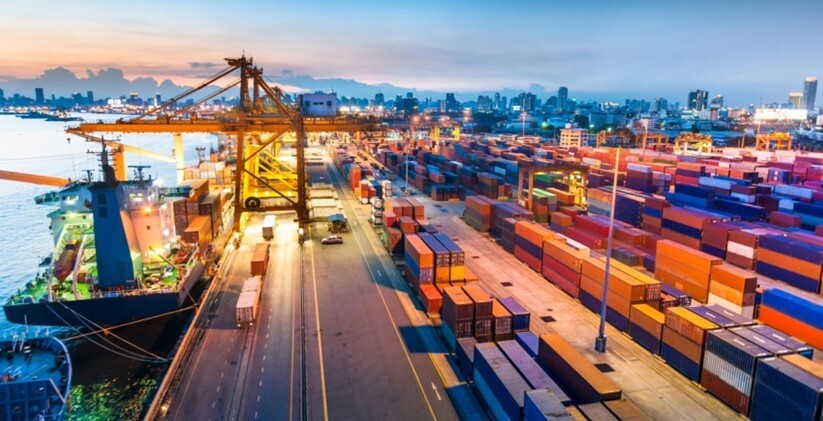
The final activity of the seller is the delivery of the goods to the port that is nearest to the buyer. Seller responsibility ends here, and the buyer is responsible for the activities that take place afterward like delivery of the goods from port to the buyer’s place.
2. In CNF (Cost and freight) shipping, what are the major Buyer’s responsibilities?
Following are the buyer’s responsibilities in the CNF shipping term.
- Payment for goods
The buyer needs to make the payment of the received goods. All the payments should be cleared and payment should be made according to the pre-decided terms and conditions.

- Discharge and forward carriage
According to CNF, Once the seller ship the goods to the nearest port, the buyer needs to discharge and forward the carriage from that point onward.
- Is there a formula to estimate the CNF final price for Buyer or Seller?
There is no formula available to estimate the final CNF price. Buyers and sellers can calculate the price roughly by considering all their expenses.
However, it is important to keep in mind the final CNF price will be always greater than the estimated price because of the extra additional charges of delivery and customs clearance.
Chapter 4: How Freight Forwarding Agent can Help with your Shipments from China?
In the CNF shipping term, sellers and buyers have to pay a lot of additional costs that increase the final CNF fee. A freight forwarding agent can help you to get your shipment from China smoothly without going through the hassle of organizing all the activities yourself.
It is not only cost-effective it also helps you save time and energy. These agents take care of all the aforementioned costs including customs clearance fees, docking charges, warehouse storage fees, port security, etc.
1. Cost overhead in the CNF(Cost and Freight) price can be minimized
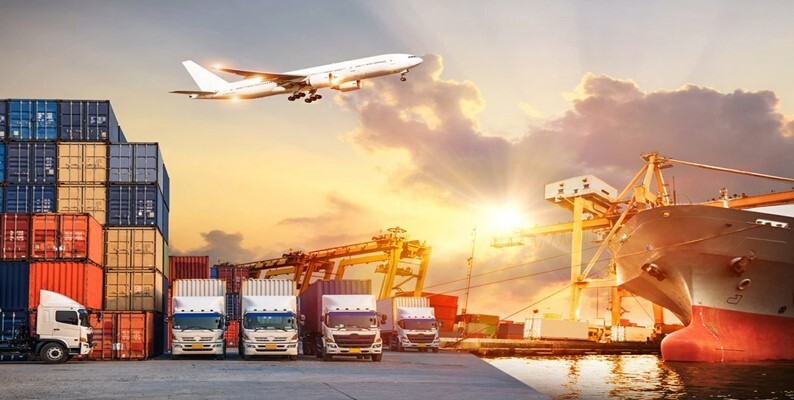
In the CNF agreement, there are a lot of additional costs that are not included in the CNF cost, and the buyer or seller needs to bear that costs. Using a freight forwarding agent can help in minimizing the cost overhead in the CNF.
2. Freight Forwarding Agent provide cost-effective services
Freight forwarding companies usually deal with the goods in bulk volume. It is easier for them to negotiate a better price with carriers due to bulk volume.
There are a lot of freight forwarding agents in China that offer competitive prices for managing all the services whose costs are not included in the CNF such as warehouse service and customs clearance etc.
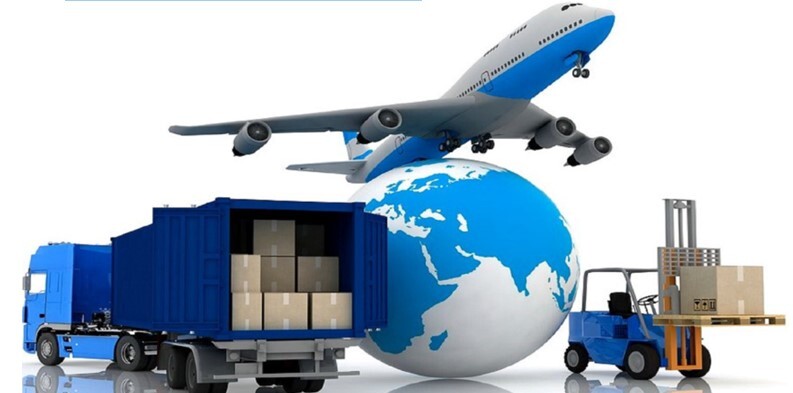
3. Freight forwarder simplifies the Shipping process
If you are a beginner in trading then managing all these trading-related responsibilities can be overwhelming for you. A freight forwarding agent simplifies the whole shipping process.
Taking the service of a trustworthy freight forwarding agent, you won’t have to invest your time and energy in comparing the prices, researching, and negotiating.
4. Freight Forwarding Agents are trustworthy and reliable
Freight Forwarding Agents are trustworthy and reliable. All the processes that are included in the shipping from the seller’s side to the buyer’s end are documented properly to maintain the quality and control check. Chinese companies & Agents provide reliable and competitive services.
Hire Yihok Sourcing for Hassle-Free Shipping from China

If you want to import from China, you might face a lot of challenges at first. Don’t worry, we understand! Navigating the complexities of sourcing products from China can be a daunting task— especially when you don’t have much knowledge about international terms, procedures, and suppliers.
Finding the right suppliers to ensure quality control and timely delivery is important. This is where Yihok Sourcing steps in, offering a comprehensive and hassle-free solution to meet all your sourcing needs.
Now you might think why choose Yihok Sourcing for your importing needs? Let’s understand!
a) Expert Supplier Management:
At Yihok Sourcing, we’re pros at finding the right people to work with. Imagine you’re looking for someone to make a product for you. You want someone reliable who won’t let you down. That’s where we come in. We’ve been doing this for 11+ years, so we know exactly how to find trustworthy suppliers who make top-quality products at good prices. When you work with us, you can trust that you’re getting the best of the best.
b) Comprehensive Sourcing Services:
We offer everything you need to get your products made and shipped. Whether you’re starting from scratch with a brand new product idea or just need help finding the right suppliers, we’ve got you covered. Plus, we can help with things like branding your products and making sure they meet all the necessary standards.
c) End-to-End Delivery Solutions:
Once your order is placed, we handle everything until your products arrive safely at your doorstep. This includes making sure the products are made to the right standards, packing them up securely, and arranging for them to be shipped to you. We even offer services like quality control checks to make sure everything is perfect before it gets to you.
d) Cost-saving Procurement Solutions:
We’re all about helping you save money without sacrificing quality. For example, we can help you find ways to buy in bulk or negotiate better prices with suppliers. We also know how to make the most of your shipping budget by finding the most efficient routes and packaging options.
e) Tailored Product Recommendations and Development:
We understand that every business is unique, so we offer personalized recommendations and development services to meet your specific needs. Let’s say you have a particular idea for a product, but you’re not sure how to make it a reality. We can help you figure out the best way to bring your idea to life and even help with things like branding and packaging.
f) Knowledge of International Terms & Procedures:
When it comes to international trade terms like CNF (Cost and Freight) and other procedures, we’ve got you covered. Let’s say you’re importing goods from China and you’re not sure which terms to use. We can help you understand what each term means and which one is best for your situation. We’ll work with you to make sure you’re using the right terms and implementing the right procedures to get the best results for your business.
For more information or free consultation, contact our sourcing consultant Sunny Qiu on below mention details!
Chapter 5: Difference between CNF and other Shipping Terms?
Some other incoterms have some similarities with the CNF, but they are different. In this chapter, we have provided a brief comparison between CNF and some other well-known incoterms.
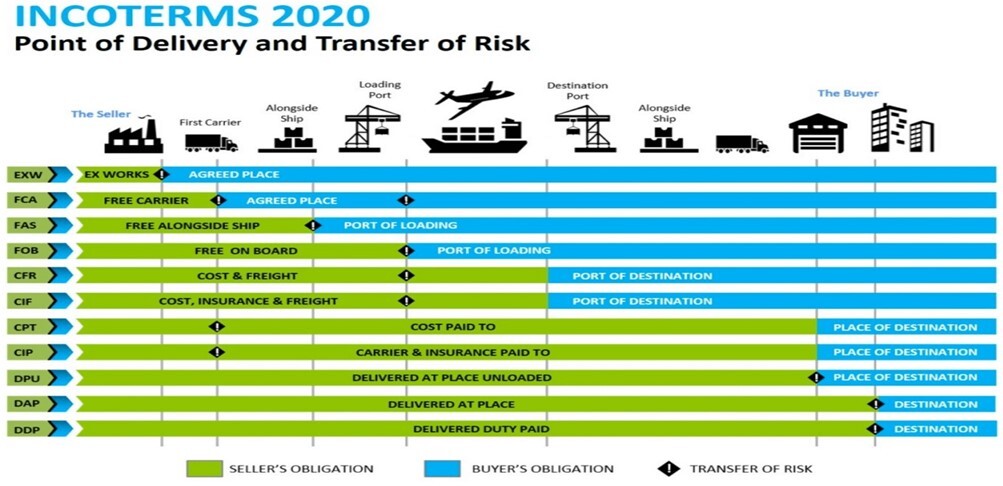
1. CNF vs FOB
FOB stands for Freight on Board. In FOB if the agreement is of FOB Destination, it means the seller is responsible to deliver the goods at the destination port of the supplier.
If any losses or damage happens during this process then the shipper is responsible for that. However, if the agreement is FOB shipping point.
That means the shipper is responsible to bring the goods to the shipping port from where the goods will be loaded on the ship and go to the destination port. So it all depends on what kind of agreement is there between both parties.
In the case of CNF, the shipper is responsible for any damage or losses that may occur until the unloading of the cargo. These shipping terms are decided between the shipper and consignee before the cargo is moved.
CNF is a better option for the small shipment and for the traders that are new to trading. FOB is a better option for experienced traders who have experienced in international trade and have their logistic and forwarding agents.
2. CNF vs EXW
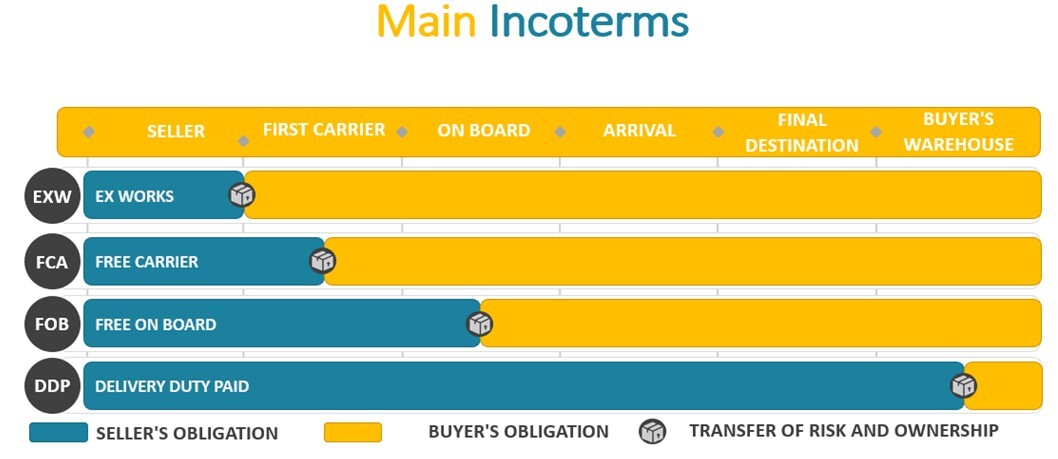
EXW stands for Ex Works. This incoterm refers to an agreement between the buyer and seller that all the shipping and freight responsibilities will refer to the buyer. It is an advantage on the end of the seller as the seller doesn’t have to bear the price of the shipping.
For example, if the seller is in China and the buyer is in the UK and they agree upon the EXW agreement then the seller will keep the shipment ready and the buyer will pick the cargo within China.
The buyer will be solely responsible for all the shipment and if any losses or damage happen during the shipment then it will be the buyer’s responsibility and the seller will not be liable for any losses.
However, In the case of the CNF trade agreement both seller and buyer share the shipment responsibilities.
3. CNF vs DDP
DDP stands for Delivered Duty Paid. In this agreement, the seller is responsible for all the shipping responsibilities unless the cargo is delivered to the buyer.
Seller is responsible for all the shipping tasks, any losses or damage that may occur, and all the costs of the transportation. It includes the cost of the insurance, customs clearance, and other costs associated with the import/export.
Shipper or sellers have to deliver the cargo to the buyer’s destination that they agree upon in the contract. DDP is beneficial for the buyer because the seller is responsible for most of the shipping errands and costs involved in the shipping.
The seller will bring the goods after clearing the customs to the buyer’s warehouse in his country. In CNF, both shipper and consignee share the shipping responsibilities and cost.
3. CNF vs CIF
CIF stands for Cost Insurance and Freight. CNF and CIF are closely related however they are not the same. They both work in the same way except that CIF also provides insurance on the cargo.
For example, if you are a seller located in China and you want to ship to a buyer that is located in the USA. You as a seller have to pay for the freight charges and insurance charges to ship the cargo to the buyer’s nearest port.
Seller bears all the charges until the unloading and then buyer receives the cargo, pays the custom-related expense and taxes.
The buyer will also be responsible for the shipment from the port to his/her location. CNF is the same as CNF except that CNF does not include insurance coverage.
Chapter 6: FAQs about CNF Shipping Term

1. Can CNF shipment be used for Airfreight?
No CNF incoterm cannot be used for the airfreight. CNF shipment term is only valid for the ocean freight, shipments that are made through the waterway.
2. Does CNF involve risk?
CNF does not include the insurance cost. In the CNF agreement seller is not responsible for the insurance of the cargo so if the seller or buyer is not taking separate insurance services then it can be risky if any losses or damage occurs during the shipment or loading and unloading of the cargo.
3. Which Incoterms are best for a seller?
FOB (Freight on Board) is most commonly used in international trade. In FOB seller is responsible for the loading of the cargo on the vessel.
EXW incoterm is most benefitical for the supplier as he just need to make the products and then the buyer will have to collect it from the supplier’s factory or warehouse and handle everything from there.
4. Which Incoterms are best for a buyer?
DDP (Delivered Duty Paid) incoterm is also widely used, this is fully beneficial for the buyer because the seller is responsible to not only ship the goods to the buyer’s country but also clear the goods from the customs and deliver it to the buyer’s warehouse in his own country.
5. Does CNF include the cost of insurance?
No, CNF does not include the cost of insurance. Seller is not liable to take insurance services for the cargo.
Conclusion
Incoterm is international commercial terms that are defined by the International Chamber of Commerce to facilitate international trade.
CNF (cost and freight) is an incoterm that is used for international trade. It refers to a standardized trade agreement between the seller and buyer.
We hope that this blog would have helped you to better understand about CNF. Its advantages and what costs it include.


